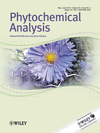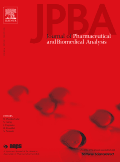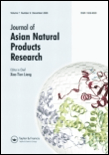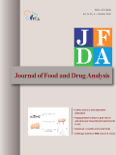
PHYTOCHEMICAL ANALYSIS
Scope & Guideline
Pioneering Analytical Methods for Phytochemical Discovery
Introduction
Aims and Scopes
- Phytochemical Profiling:
In-depth analysis of the chemical constituents of plants, including identification and quantification of bioactive compounds through various chromatographic and spectrometric techniques. - Metabolomics:
Utilization of metabolomic approaches to understand the metabolic pathways of plants, their responses to environmental factors, and the therapeutic potential of their metabolites. - Quality Control of Herbal Medicines:
Development and application of methodologies for quality assessment of herbal products, including fingerprinting techniques and the establishment of quality markers. - Chemometrics:
Integration of statistical and mathematical methods to analyze complex data sets, enhancing the interpretation of phytochemical profiles and improving the accuracy of quality control processes. - Natural Product Discovery:
Focus on the discovery of new bioactive compounds from plant sources, assessing their pharmacological properties and potential therapeutic applications. - Environmental Impact on Phytochemistry:
Research on how different environmental factors, such as geographical location and cultivation practices, affect the phytochemical composition of medicinal plants.
Trending and Emerging
- Application of Artificial Intelligence and Machine Learning:
Emerging use of AI and machine learning techniques in metabolomics and data analysis to enhance the identification and prediction of phytochemical profiles and their biological activities. - Eco-Friendly Extraction Techniques:
Growing emphasis on sustainable and green extraction methods, such as deep eutectic solvents and microwave-assisted extraction, which align with global trends towards environmental sustainability. - Network Pharmacology:
Integration of network pharmacology with phytochemical analysis to elucidate the mechanisms of action of herbal medicines and to predict potential therapeutic effects based on chemical composition. - Comprehensive Metabolic Studies:
Increased focus on holistic metabolic profiling that combines metabolomics, transcriptomics, and proteomics to provide a more complete understanding of plant physiology and bioactivity. - Quality by Design (QbD) Approaches:
The implementation of QbD principles in the development and validation of herbal products, ensuring consistent quality and efficacy through systematic design and optimization. - Plant Biotechnological Applications:
Emerging interest in the biotechnological aspects of phytochemistry, including genetic engineering and synthetic biology to produce valuable phytochemicals and improve plant properties.
Declining or Waning
- Traditional Extraction Methods:
There has been a noticeable reduction in studies focusing on conventional extraction techniques, as researchers increasingly favor modern, eco-friendly, and efficient extraction methods such as deep eutectic solvents and supercritical fluid extraction. - Basic Phytochemical Characterization:
Studies that solely characterize phytochemicals without linking them to biological activities or quality control measures are becoming less frequent, suggesting a shift towards more applied research that emphasizes practical outcomes. - Single Compound Studies:
Research concentrating on individual compounds is declining in favor of comprehensive studies that explore the synergistic effects of multiple compounds in herbal formulations. - In Vivo Studies:
The number of studies focusing exclusively on in vivo experiments without integrating them with metabolomics or chemical profiling has decreased, reflecting a trend towards more holistic approaches to understanding plant-derived compounds.
Similar Journals

Journal of Pharmaceutical and Biomedical Analysis
Transforming analytical techniques into biomedical breakthroughs.The Journal of Pharmaceutical and Biomedical Analysis, published by ELSEVIER and available in print and online formats, stands as a pivotal source of knowledge in the realms of Analytical Chemistry, Clinical Biochemistry, Drug Discovery, and Pharmaceutical Science. With an ISSN of 0731-7085 and an e-ISSN of 1873-264X, this journal is dedicated to publishing high-quality research that advances the understanding and development of analytical techniques in pharmaceuticals and biomedicine. The journal has earned a solid reputation, reflected in its Q2 category rankings across five distinct fields for 2023, and boasts impressive Scopus rankings, signaling its robust impact within the academic community. The Journal of Pharmaceutical and Biomedical Analysis serves as an essential resource for researchers, professionals, and students alike, providing actionable insights and fostering innovation that can directly influence future advancements in drug development and biomedical applications.

ACTA PHARMACEUTICA
Connecting scholars and practitioners with cutting-edge insights.ACTA PHARMACEUTICA is a distinguished open-access journal published by SCIENDO, dedicated to advancing knowledge in the fields of medicine and pharmaceutical sciences. Established in 1992, the journal has made significant contributions to the scholarly community, providing a platform for innovative research and discussion. With a strong presence in both Q2 and Q3 quartiles across various categories including Pharmaceutical Science and Pharmacology, ACTA PHARMACEUTICA ranks favorably, positioning its contributions in the upper tiers of the field. The journal's commitment to open access since 2007 ensures that both practitioners and scholars have immediate access to cutting-edge developments, thereby fostering collaboration and knowledge sharing. With its scope spanning a broad spectrum of pharmaceutical and biomedical research, ACTA PHARMACEUTICA is an essential resource for researchers, professionals, and students keen to stay abreast of the latest advancements and trends in these vital areas of study.

JPC-JOURNAL OF PLANAR CHROMATOGRAPHY-MODERN TLC
Elevating Standards in Analytical and Clinical Biochemistry.JPC-JOURNAL OF PLANAR CHROMATOGRAPHY-MODERN TLC, published by Springer Heidelberg, is a pivotal resource in the fields of Analytical Chemistry, Biochemistry, and Clinical Biochemistry. With an ISSN of 0933-4173 and an E-ISSN of 1789-0993, this journal serves as an essential platform for the dissemination of innovative research on planar chromatography techniques, specifically modern thin-layer chromatography (TLC). With its upcoming coverage extending to 2024 and a third quartile ranking (Q3) across major scientific categories in 2023, it addresses the critical advancements and applications in analytical methods. Although it does not offer open access, the journal's rigorous peer-review process ensures high-quality findings that contribute to the progression of these vital scientific disciplines. The journal is located in Heidelberg, Germany, and continues to be a beacon for researchers, professionals, and students who seek to enhance their knowledge and practice in chromatographic techniques.

Food Chemistry-X
Unlocking Innovations in Food Chemistry.Food Chemistry-X is a premier open-access journal published by Elsevier, dedicated to advancing the field of food chemistry through high-quality research and comprehensive reviews. With its ISSN of 2590-1575, the journal has gained significant attention since adopting an open-access model in 2019, allowing wide dissemination of knowledge and innovations in food science. Based in the United Kingdom, it holds prestigious Q1 rankings in both Analytical Chemistry and Food Science categories as of 2023, positioning itself as a leading platform for researchers worldwide. The journal's focus spans extensive topics within food chemistry, including food safety, nutritional analysis, and the chemical properties of food, offering insights that are crucial for addressing contemporary challenges in food production and consumption. With a Scopus rank placing it in the 65th percentile among the top journals in Food Science and the 58th percentile in Analytical Chemistry, Food Chemistry-X is an essential resource for academics, professionals, and students seeking to stay at the forefront of research and innovation in this vibrant field.

Annals of Phytomedicine-An International Journal
Fostering Global Dialogue on Medicinal PlantsAnnals of Phytomedicine - An International Journal is a leading publication dedicated to the exploration and advancement of phytomedicine, broadly encompassing research on medicinal plants, their bioactive compounds, and therapeutic applications. Published by UKAAZ Publications, this journal seeks to bridge the gap between traditional and modern medicinal practices, offering a platform for researchers, professionals, and students passionate about herbal therapies and their efficacy. With an ISSN 2393-9885 and E-ISSN 2278-9839, the journal adheres to stringent peer-review protocols to ensure the publication of high-quality research. Fostering open access to knowledge in a rapidly evolving field, Annals of Phytomedicine serves as an essential resource, promoting innovative findings and comprehensive reviews that drive the global discourse on phytotherapy. By engaging with this journal, readers can stay informed about the latest advancements, contributing significantly to the scholarly community and beyond.

Modern Phytomorphology
Transforming Understanding of Plant Growth and FormModern Phytomorphology is a distinguished open-access journal dedicated to the field of plant morphology and development, published by the renowned State Natural History Museum NAS Ukraine. Since its inception in 2012, the journal has become a vital platform for researchers and professionals to share innovative findings and engaged discussions surrounding phytomorphological studies. With the aim of furthering knowledge in plant form and structure, Modern Phytomorphology encourages submissions that explore the intricate relationships between plant morphology and environmental factors, evolutionary processes, and biodiversity. By providing an accessible medium for high-quality research, this journal significantly contributes to the scientific understanding of plant life, making it an essential resource for students, researchers, and educators alike. For those passionate about the intricacies of plant development, Modern Phytomorphology offers a rich repository of information that is both impactful and relevant in today's ecological context.

Records of Natural Products
Advancing Discoveries in Natural Product ScienceRecords of Natural Products is a distinguished journal focused on the dynamic fields of Drug Discovery, Organic Chemistry, Pharmacology, and Plant Science. Published by ACG PUBLICATIONS in Turkey, this journal serves as a vital platform for disseminating innovative research findings and advancements in natural product studies. With its convergence spanning from 2009 to 2024, Records of Natural Products holds a commendable position in the academic realm, featuring a 2023 Q3 ranking in Drug Discovery and Organic Chemistry, alongside a notable Q2 ranking in Plant Science. Despite its current lack of open access, the journal is committed to providing quality content that enriches the understanding of natural products and their potential applications. Researchers and professionals alike can benefit from the journal's insights, which not only contribute to scientific knowledge but also facilitate advancements in pharmaceuticals and sustainable practices. By exploring the rich tapestry of natural product research, this journal underscores its importance as a leading resource for professionals dedicated to enhancing the efficacy and application of natural compounds.

Natural Product Communications
Empowering Discoveries in Pharmacology and WellnessNatural Product Communications is an esteemed open-access journal published by SAGE Publications Inc, dedicated to the exploration and dissemination of knowledge concerning natural products in diverse fields, including Complementary and Alternative Medicine, Drug Discovery, and Pharmacology. Since its inception in 2006 and continuing through its converged years until 2024, the journal has gained recognition with a robust focus on plant science and the medicinal properties of natural products. With a commendable impact factor reflected in its category quartiles (Q3 across key domains), Natural Product Communications serves as a vital resource for researchers and professionals who aim to further the understanding of the therapeutic potential of natural compounds. As an open-access journal since 2020, it ensures wide accessibility to its published research, thereby facilitating collaboration and innovation within the scientific community. This commitment to excellence makes Natural Product Communications a crucial platform for advancing research in the holistic and pharmacological sciences.

JOURNAL OF ASIAN NATURAL PRODUCTS RESEARCH
Exploring the Essence of Asian Natural InnovationsJOURNAL OF ASIAN NATURAL PRODUCTS RESEARCH is a prestigious publication in the field of natural products, focusing on valuable research spanning analytical chemistry, pharmacology, and complementary medicine. Published by Taylor & Francis Ltd in the United Kingdom, this journal has established itself as a key resource for academics and professionals seeking to explore advancements in drug discovery and organic chemistry. With a converged publication timeline from 1998 to 2024, the journal boasts several commendable category quartiles as of 2023, reflecting its robust standing in the research community: Q2 in Complementary and Alternative Medicine, Q3 in multiple domains including Analytical Chemistry and Organic Chemistry, and Q4 in Molecular Medicine. Although it currently does not offer open access, the journal remains a valuable compendium for empirical research and innovative studies in areas such as pharmacology and medicinal chemistry. Researchers, professionals, and students alike will find the JOURNAL OF ASIAN NATURAL PRODUCTS RESEARCH to be an essential platform for sharing groundbreaking findings and fostering collaborations that lead to significant advancements in science and health.

JOURNAL OF FOOD AND DRUG ANALYSIS
Advancing Knowledge in Food Safety and Drug EfficacyJOURNAL OF FOOD AND DRUG ANALYSIS, an esteemed publication in the realms of Food Science and Pharmacology, is published by DIGITAL COMMONS BEPRESS. With an impactful commitment to open access since 2013, this journal facilitates the dissemination of critical research findings, making them readily available to a global audience. Boasting a commendable Q2 ranking in both Food Science and Pharmacology, the journal occupies a prominent position in its respective categories, reflecting its quality and relevance in the field. Established in 1994, the journal has successfully converged its focus to encompass a wide range of topics related to the analysis of food and drugs, thereby providing valuable insights to researchers, practitioners, and students alike. With its indexed indicators in Scopus showcasing a strong performance—ranking #85 among 389 in Food Science and #108 among 313 in Pharmacology—it stands as a crucial platform for the advancement of knowledge and innovation. For those looking to stay abreast of pivotal developments in food safety and drug efficacy, JOURNAL OF FOOD AND DRUG ANALYSIS is an indispensable resource.